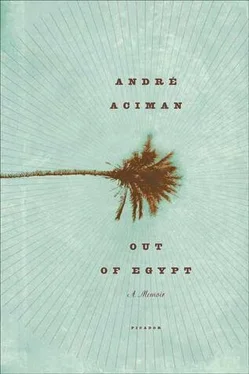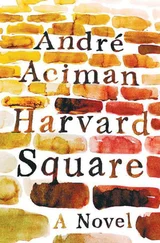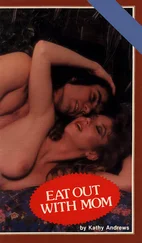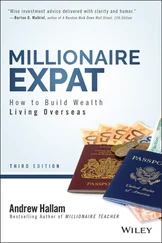H. M. Spingarn. Herbert Michael Spingarn was an Englishman whom Vili had met as a child in Constantinople and who had stirred in him two lifelong passions: the Levantine desire to emulate anything British, and the Ottoman contempt for British anything. Uncle Vili, who had given up his distinctly Jewish name for an Anglo-Saxon one, cringed with half-concealed embarrassment when I told him that this fellow Spingarn had himself been a Jew. “Yes, I recall something like that,” he said vaguely. “We’re everywhere, then, aren’t we? Scratch the surface and you’ll find everyone’s a Jew,” jeered the octogenarian Turco-Italian-Anglophile-gentrified-Fascist Jew who had started his professional life peddling Turkish fezzes in Vienna and Berlin and was to end it as the sole auctioneer of deposed King Farouk’s property. “The Sotheby’s of Egypt; but a peddler nonetheless,” he added, reclining in his chair as we both watched a flight of birds descend upon the murky, stagnant waters of what must have once been a splendid pond. “Still, a great people, these Jews,” he would say in broken English, affecting a tone of detached condescension so purposefully shallow and so clearly aware of its own fatuousness as to suggest that, when it came to his co-religionists, he always meant the opposite of what he said. Following praise, he would always vilify these admirable yet “scoundrel Jews,” only then to change his tune once more. “After all, Einstein, Schnabel, Freud, Disraeli,” he would declaim with a glint in his eyes and a half-suppressed smile. “Were they or weren’t they?”
He had left Egypt — to which the family had moved from Constantinople in 1905—a would-be cadet with fire in his gut and quicksilver in his eyes. He had studied in Germany, served in the Prussian army, changed sides when the Italians joined the war in 1915, and after Caporetto sat out the rest of the war in Cyprus as an interpreter, returning to Egypt four years after his discharge, a polished rake in his late twenties whose insolent good looks betrayed a history of shady deals and ruthless sieges in the battle of the sexes. Impressed by his conquests, his sisters judged him decidedly masculine, what with the roguish tilt of his fedora, the impatient Come, come now in his voice, and that patronizing swagger with which he would come up and grab a bottle of champagne you were trying to uncork and say, Let me —never overbearing, but just enough to signal there was more, much more. He had fought in all sorts of battles, on all sorts of sides, with all sorts of weapons. He was a consummate marksman, a remarkable athlete, a shrewd businessman, a relentless womanizer — and yes, decidedly masculine.
“Are we or aren’t we,” he would brag after a conquest, or a killing in the stock market, or on suddenly recovering from a hopeless bout of malaria, or when he saw through a shrewd woman, or knocked down a street ruffian, or when he simply wanted to show the world that he was not easily hoodwinked. It meant: Did I show them or didn’t I? He would use this phrase after negotiating a difficult transaction: Didn’t I promise they’d come begging for my price? Or when he had a blackmailer thrown in jail: Didn’t I warn him not to take me for a pushover? Or when his beloved sister, Aunt Marta, came crying to him hysterically after she had been jilted by yet another fiancé, in which case his phrase meant: Any man worthy of the name could have seen it coming! Didn’t I warn you? And then, to remind her she was made of stronger stuff than tears, he would sit her on his lap and, holding both her hands in his, rock her ever so gently, swearing she’d get over her sorrow sooner than she thought, for such was the way with lovesickness, and besides, was she or wasn’t she?
Later, he would buy her roses and placate her for a few hours, maybe a few days. But she was not always easily swayed and, sometimes, scarcely would he have let go of her and gone to his study than he would suddenly hear her shrieking hysterically at the other end of the apartment: “But who’ll marry me, who?” she kept asking her sisters as she sobbed and blew her nose on the first rag that fell her way.
“Who’ll marry me at my age, tell me, who, who?” she would ask, shrieking her way back into his study.
“Someone will, you mark my words,” he would say.
“No one will,” she insisted. “Can’t you see why? Can’t you see I’m ugly? Even I know it!”
“Ugly you’re not!”
“Just say the truth: ugly!”
“You may not be the most beautiful—”
“But no one in the street will ever turn around to look at me.”
“You should be thinking of a home, Marta, not the street.”
“You just don’t understand, do you? All you do is twist my words and make me sound stupid!” She began raising her voice.
“Look, if you want me to say you’re ugly, then all right, you’re ugly.”
“No one understands, no one.”
And she would drift away again like an ailing specter come to seek comfort among the living only to be shooed away.
Aunt Marta’s crises de mariage, as they were called, were known to last for hours. Afterward she had such pounding headaches that she would put herself to sleep early in the afternoon and not dare show her face until the next morning, and even then, the storm was not necessarily quelled, for as soon as she got out of bed she would ask whoever crossed her path to look at her eyes. “They are puffy,” she would say, “aren’t they? Look at them. Just look at this,” she would insist, nearly poking her eyes out. “No, they’re fine,” someone would respond. “You’re lying. I can even feel how puffy they are. Now everyone will know I cried over him. They’ll tell him, I know they will. I’m so humiliated, so humiliated.” Her voice quavered until it broke into a sob, and down came the tears again.
For the rest of the day, her mother, her three sisters, five brothers, and sisters- and brothers-in-law would take turns peeking in her door, carrying pieces of ice in a small bowl for her eyes while she lay in the dark with a compress of her own devising. “I’m suffering. If only you knew how I’m suffering,” she would groan, in exactly the same words I heard her whisper more than fifty years later in a hospital room in Paris as she lay dying of cancer. Outside, sitting with his other siblings in the crowded living room, Uncle Vili could no longer control himself. “Enough is enough! What Marta really needs — we all know what it is.” “Don’t be vulgar now,” his sister Clara interrupted, unable to stifle a giggle as she stood at her easel, painting yet another version of Tolstoy’s grizzled features. “See?” Uncle Vili retaliated. “You may not like the truth, but everyone agrees with me,” he continued with increased exasperation in his voice. “All these years, and the poor girl still doesn’t know a man’s fore from his aft.” Their older brother Isaac burst out laughing. “Can you really imagine her with anyone?” “Enough is enough,” snapped their mother, a matriarch nearing her seventies. “We must find her a good Jewish man. Rich, poor, doesn’t matter.” “But who, who, who, tell me who?” Aunt Marta interrupted, overhearing the tail end of their conversation on her way to the bathroom. “It’s hopeless. Hopeless. Why did you make me come to Egypt, why?” she said, turning to her elder sister Esther. “It’s hot and muggy, I’m always sweating, and the men are so dreadful.”
Uncle Vili stood up, curled his hand around her hip, and said, “Calm yourself, Marta, and don’t worry. We’ll find you someone. I promise. Leave it to me.”
“But you always say that, always, and you don’t ever mean it. And besides, who do we know here?”
This was Vili’s long-awaited cue. And he rose to the occasion with the studied nonchalance of a man driven to use exactly the words he has been dying to say. In this instance, they meant: Can anyone really doubt that we are well connected?
Читать дальше












